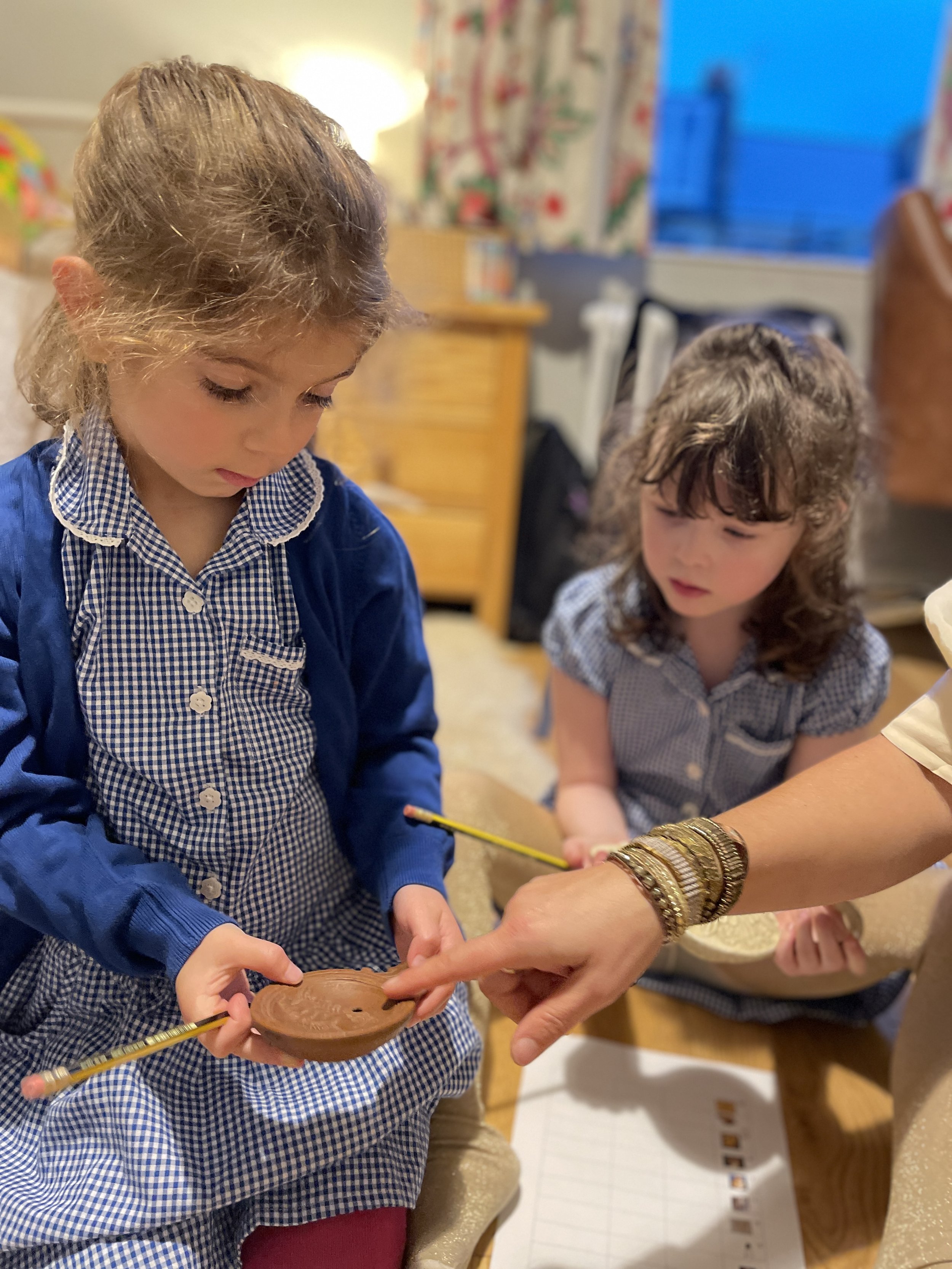Instead of a school trip to the museum, let the museum come to you!
Do your pupils enjoy exploring? Do they love asking questions? Would they like to handle ‘the real thing’?
Artefacts in Action offers an exciting on-site handling artefacts session for primary schools throughout London and the surrounding area. Led by a qualified Classics teacher, the workshop offers a stimulating introduction to the topics of the Ancient Greeks and / or Romans. Each session includes an introductory presentation, time for pupils to handle and examine artefacts in small groups, and a consolidation Q&A session. An extended session can explore the purpose and structure of Greek temples, should teachers wish to follow up with a temple construction lesson in school.
Sample artefacts: An oil lamp, an amphora, a theatrical mask, jewellery, a bone. Please note that some artefacts are replicas.
Suggested year groups: 3-6
Maximum number of pupils in one session: 60
Length of each session: 1 hour (up to a maximum of 3 sessions per visit)
How can Artefacts in Action benefit your school?
Artefacts in Action offers your pupils access to a qualified teacher with specialist knowledge in the world of the Ancient Greeks and Romans.
It allows pupils to deepen their understanding of the difference between primary and secondary sources, and pupils have exposure to other cultures via artefacts.
In response to the National Curriculum:
Artefacts in Action can provide a ‘high-quality history education [to] help pupils gain a coherent knowledge and understanding of… the wider world. It should inspire pupils’ curiosity to know more about the past’.
The experience will ‘equip pupils to ask perceptive questions, think critically, weigh evidence, sift arguments, and develop perspective and judgement’.
Pupils can ‘know and understand significant aspects of the history of the wider world – the nature of ancient civilisations’.
Pupils can also ‘understand the methods of historical enquiry, including how evidence is used rigorously to make historical claims, and discern how and why contrasting arguments and interpretations of the past have been constructed.’
Pupils are offered the opportunity to make ‘a study of Greek life and achievements and their influence on the western world.’
Tim Jenner HMI, Ofsted’s Subject Lead for History, states that ‘History is vital to a rich and broad primary education. It helps pupils to make sense of the present as well as the past, and to appreciate the complexity and diversity of human societies and development.’ In his report of April 2021, he wrote ‘Teacher subject knowledge seemed to be an important factor in the quality of education… across history in general. Schools that had support from subject-specialists… often had higher-quality plans in place.’





